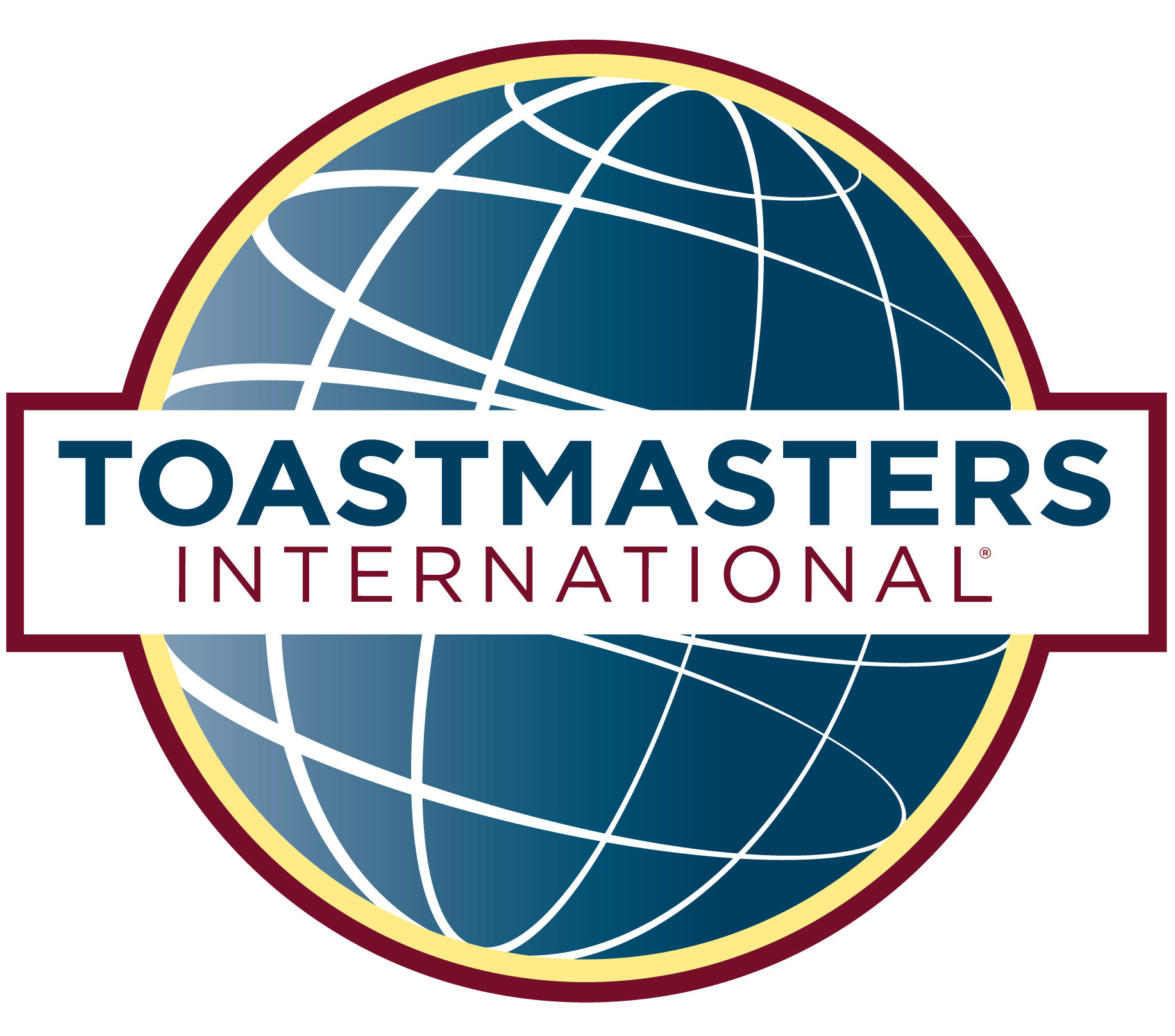THE TOAST
Siobhan’s Challenge –
“I hope that in the year to come, you make mistakes. Because if you are making mistakes, then you are making new things, trying new things, learning, living, pushing yourself, changing yourself [and] changing the world.”
Neil Gaiman (writer)
INTRODUCTION
Josep, President, welcomed members and guests to the meeting. He hoped we had had a good Christmas – and now, “Back to business!”
Noting that there were many newcomers, Alex, Toastmaster of the Evening, explained the program and proceedings. He then introduced the night’s theme, challenge.
THE JOKE
Mohammad’s clever joke, based on the idea of challenge, raised much laughter.
See the last page if you want to enjoy it again!
WORD OF THE EVENING
Amine presented the word thrive.
CAROLINE’S TABLE TOPICS
What is your challenge in the coming months? – Jessica said she would not limit herself to months. Her main challenge is to improves herself emotionally and spiritually, and this is life-long work.
Is taking a challenge the same as taking a risk? – Connal considered the challenges he has undertaken – first giving up smoking and, more recently, giving up alcohol – before concluding that no, challenges did not necessarily involve risk.
What will be better in 2024? – Tricia hoped that almost everything would be better in the coming year as she continues the process of self-improvement, but she cited three specifics for focusing her efforts: procrastination, hoarding, and organization.
To what extent should we challenge ourselves? – Amine said that in order to achieve a risk-reward balance, it was fundamentally important to step out of our comfort zone and take risks. The ego, he argued, is a box that keeps us comfortable, but its protection keeps us from everything we want.
What challenge would you not like to take? Why not? – Vicki likes challenges! She described swimming in a lake, when she was not sure if she could make it to the other side but had gone too far to return. This was a challenge she enjoyed. But, she claimed, the idea of diving off a cliff “scares me more than anything!”
Benoit, evaluating Debbie’s “Don’t Hit Zee Boat”
Benoit commended Debbie for standing in at the last moment and for using a tablet for her notes, something he said he had not seen previously. This allowed her to use her hands, which she did to great effect. He noted that her gestures gradually became more open, siuggesting that she was increasingly relaxed, and he praised her expressive face (e.g., closing her eyes to describe the beauty of a place). Benoit also mentioned Debbie’s handling of pace, using silence for suspense and able to change tempo, for example, banging on the table (as the perfection of the scene changed to the imperfection of the boat’s engine failing). Noting that Debbie is already “a great speaker”, he indicated some possibilitihes for further improvement. He urged her to explore other gestures as hers can be “churchy” and advised her to project her voice a little more.
Vicki, evaluating Paula’s ”Twists and Turns”
Vicki explained that she had enjoyed Paula’s bubbly speech contrasting two mentors, one who wanted to be a friend but set no objectives, the other who focused on the work and provided challenging tasks. She noted Paula’s use of humor, which was an important element of the speech, and cited her conclusion: having established that her first supervisor was not very professional, Paula circled back to this experience at the end by asking, “So what happened to my first boss?” – and telling us, “He was fired!” Vicki gave a few ideas for future improvement. She suggested that Paula should slow down and articulate more, and that, as this speech ran over the time limit, she should time herself as part of her preparation.
Bob, evaluating Josep’s “Mentors that Make a Difference”
Bob began by saying that this had been an excellent speech, giving him the opportunity to compliment Josep on several points. Josep’s voice engages the audience and he has great presence. Bob enjoyed his use of space, moving away from the lectern, and his effective gestures. He noted the the organization was excellent, with four major points about mentoring, each accompanied with a concrete example. However, he thought that the opening was less effective. Although Josep started with some good questions, the subject seemed to shift a few times before focusing on the stories. Moreover, by telling us about his mentor’s death at this point, he lost the opportunity of using this sad news as a dramatic ending to the speech.
Martin, evaluating Anaelle’s “Star Trek, Space and the Power of Representation”
Martin explained that his evaluation was not about the speech but about Anaelle’s ability to handle interruptions. He noted all five interrupters and discussed how Anaelle had responded to each of the questions. He spoke enthusiastically about her ability to remain calm under this pressure, hardly showing any irritation – perhaps just a little, he conceded, at the “chatterers” whose muttering was disruptive to the rest of the audience. Martin particularly praised Anaelle’s use of humor to deflect the comments and to engage the audience positively, as well as her knowledge: she diverted from her ‘script’ to speak to one of the questioners at some length.
General Evaluation
Claudia, General Evaluator, had much to praise –
- Josep’s warm personality is always communicated when he opens our meetings.
- Alex’s introduction to the evening was “fluid”. He managed his role excellently, ensuring the smooth running of the evening, particularly in overseeing program changes.
- Mohammad’s joke was cleverly theme-based.
- The evaluators were focused “one hundred percent” on the speaker – and with gentle comedy, Claudi mimicked their attentiveness. Moreover, they provided good feedback: the level of care was obvious.
Claudia offered her own “challenges” for the future, recommending –
- Look at the timer cards!
- The possibility of providing a non-alcoholic alternative to kir.
- A greater split between the role of TME and General Evaluator to facilitate the work, with each person having more individual responsibility for a team.
- Members should be mindful of guests. In order for them to have the best experience, newcomers should be seated throughout the room. Not only would that provide a warmer welcome but members could guide them as needed (e.g., through the voting).
Guests
- Hatem had come to learn public speaking. He told us he enjoyed the meeting.
- Haifa, who had been to a Toastmasters session in Lebanon and made it her New Year’s Resolution to come, declared the evening “interesting”.
- Florence, on a return visit, described the session as “engaging” and says she is excited to work on her skills.
- Constance had heard of Toastmasters through work and wanted to give it a try: it had been a “discovery”.
- Diane had recommended Toastmasters to her son – and then decided that she should follow her own advice!
- Lucile came on the advice of a friend and told us she was “very pleased” she had done so.
- Finally, Thibaut came to us on the recommendation of Silvia, who “warmly recommended this group and not another one”!
The Winners
Amine – Table Topics
Anaelle – Speech
Benoit – Evaluation
MOHAMMAD’S JOKE
Dracula decides to give his three bats a challenge. The bat which sucks more blood than the others is the winner – so off they go!
The first bat comes back, its mouth full of blood. Dracula says, “Congratulations, how did you do it?” The bat says, “Do you see that tower? Behind it there is a house. I went in and sucked the blood of all the family.”
Dracula says, “Very good”.
The second bat comes back, its face completely covered in blood. Dracula is shocked, “How did you do that?” The bat replies, “Do you see that tower? Behind it there is a hotel. I went in and sucked the blood of all the guests.” Dracula says, “Fantastic.”
The third bat returns, its entire body covered in blood. Dracula doesn’t believe his eyes. “How did you do that?” The bat replies, “Do you see that tower?” Dracula replies, “Yes.”
And the bat says, “Well, I didn’t!”
REMINDER
Next meeting – January 23


Comments are closed